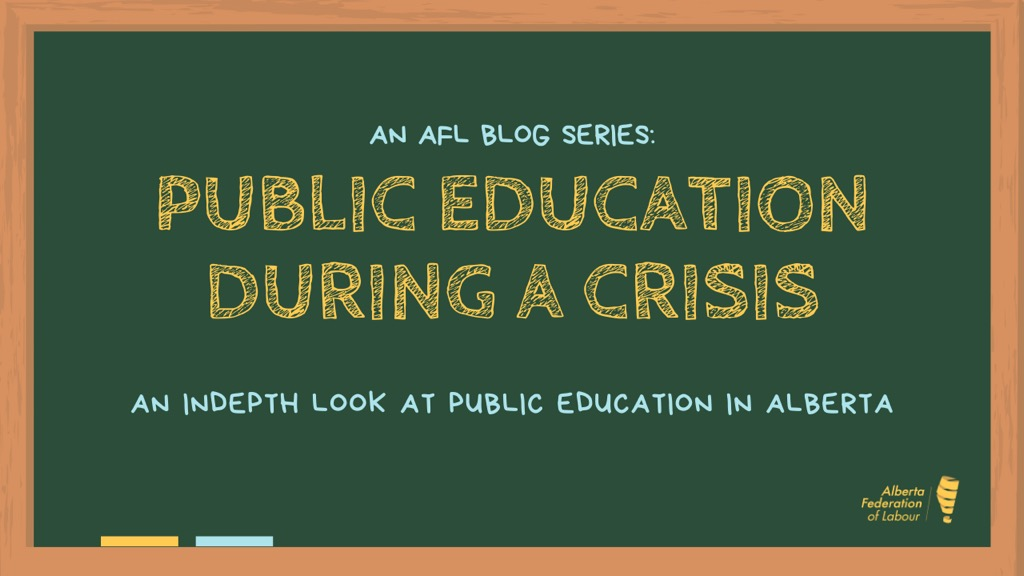PART 3: Is Disaster Capitalism here in Alberta?
Like New Orleans and Puerto Rico before it, Alberta is in the midst of a crisis. This crisis could be used to further undermine public services, namely public education, in ways expedited by disaster capitalism.
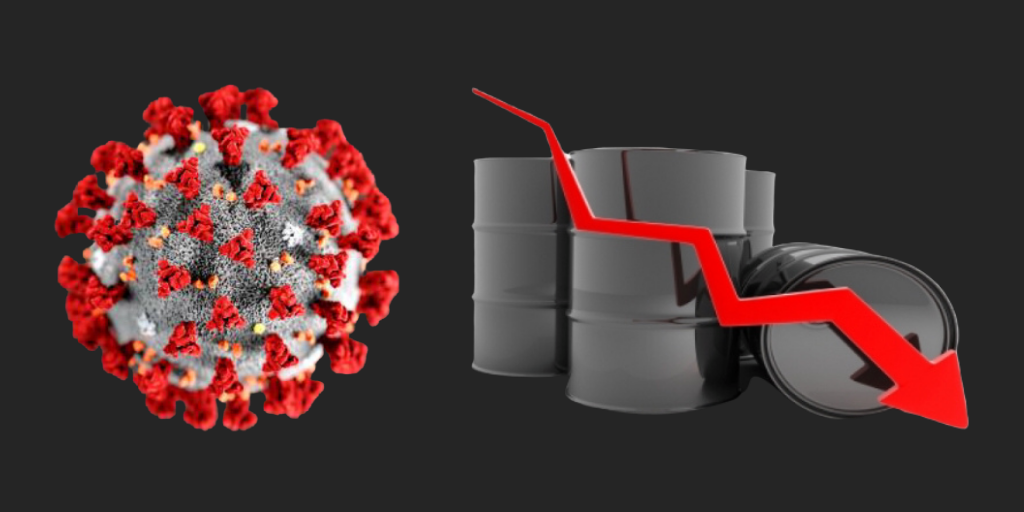
COVID-19 Global Pandemic and Oil Price Collapse (2020)
The Crisis: The World Health Organization declared COVID-19 a global pandemic on March 12, 2020. COVID-19 arrived in Alberta with an associated collapse in the price of oil. On March 15, the Alberta provincial government announced K-12 education classes will be cancelled.
The “Shock Doctrine” Opportunity: Alberta is now perfectly poised for the disaster capitalism that has played out in regions like New Orleans after hurricane Katrina and Puerto Rico after hurricane Maria. You can read more on that in Part 2 of this series.
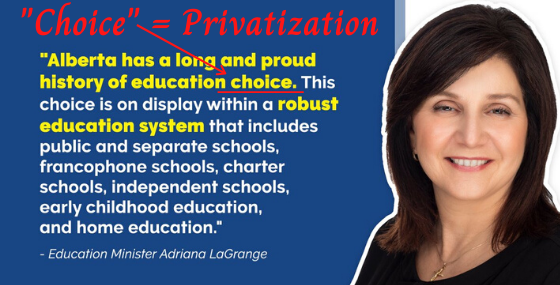
Before the Crisis: The Path to Privatization
Prior to the pandemic arriving at Alberta’s door step, some very telling, foundational policies had already been laid by the UCP government. All under the guise of ‘choice’ in Education. Now with these changes in place, the UCP could accelerate their agenda to permanently undercut public education.
At the beginning of their term the UCP lifted the cap on Charter schools using the Education Act, enacted on September 1, 2019, clearing the way for the emergence of more online charter schools in the aftermath of the pandemic.
In November 2019, the UCP party passed resolution Policy 15 which approves an American style voucher system, stating: “Implement an education ‘voucher system’ that will provide for equal per-student funding regardless of their school choice, free from caveats or conditions.” Although this is currently only UCP party policy, this kind of policy is foundational for introducing a voucher system and is a very tangible threat to public education in Alberta.
This year before the COVID-19 crisis the UCP made significant changes to PUF (Program Unit Funding) that eliminated funding for children with significant delays at the kindergarten level and defunded the Alberta Distance Learning Centre. These are just two changes that effectively create a hole in the public education system which can force parents and students to turn to the private system.
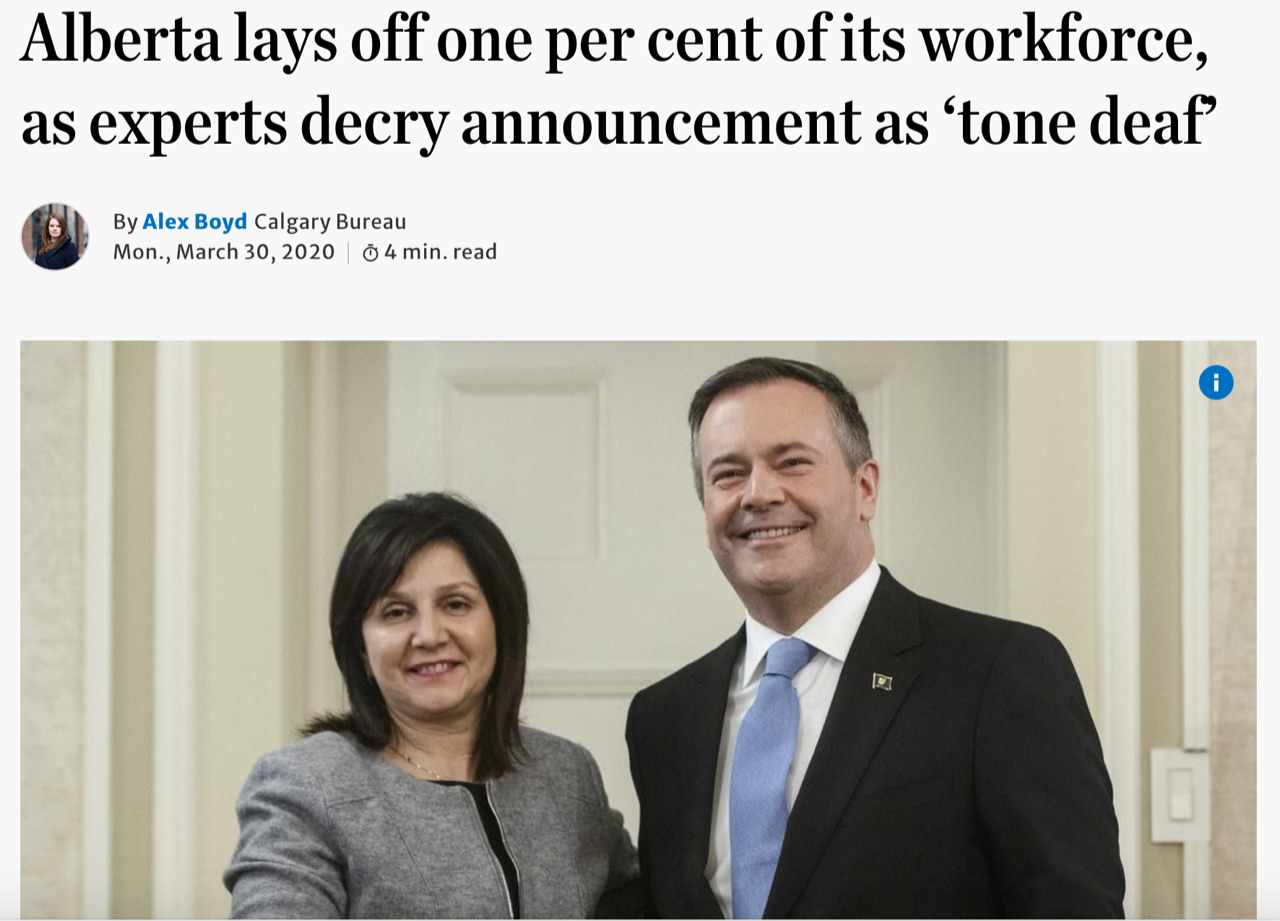
During the Crisis: Speeding towards Privatization
Since the announcement that classes were cancelled, other additional measures have augmented the crisis for public education in Alberta.
The UCP has introduced online learning, commonly and more accurately referred to as Crisis Online Learning, which has the potential to see many students leave the public system indefinitely. This rush to a “business as usual” approach to education has many educators concerned about the widening opportunity gap for children living in the margins. These gaps are easily exploited by privatizers and charter school proponents who promise to solve the issues created in the public system.
The UCP has also eliminated funding for 25,000 education workers. “The stated rationale for the decision was to “protect the safety, security and economic interests of Albertans,” with resources needing to be diverted to fight the COVID-19 pandemic. The implied premise of the government’s actions was that this was a zero-sum choice: it could spend on education or health care, but not both.”
The UCP has also taken steps to carrying on with their neoliberal agenda for Alberta as a whole. This includes passing their current provincial budget based on $58/bbl oil. Oil is currently trading well below this amount (most recently at negative values), creating an opportunity for the UCP to claim Alberta must find savings in order to avoid greater debt. One of the biggest promises made by education privatizers is that charter schools and vouchers will save the government money.
During this crisis the UCP has also passed Bill 10: Public Health (Emergency Powers) Amendment Act, allowing unprecedented abilities for Ministers to enact legislation without approval or debate. These sweeping powers give Ministers the ability to potentially enact a voucher system, break contracts, amend legislation under the guise of public health that could result in destabilizing public education, and undermine organized educational workers.
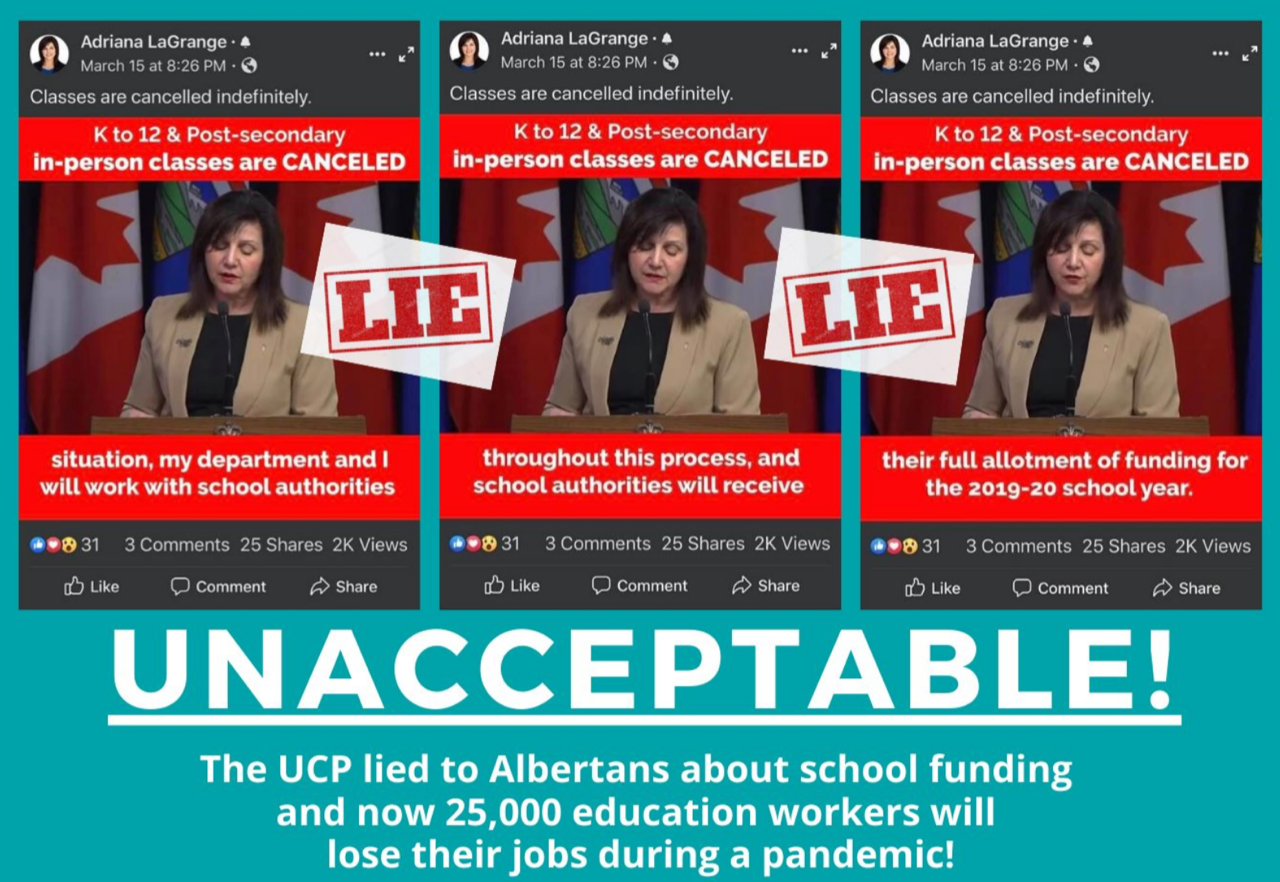
Could Disaster Capitalism Happen Here?
The pieces of the puzzle are perfectly aligned for Alberta to pursue destabilizing policies for public education. Of course, the obvious difference between New Orleans, Puerto Rico and Alberta is that Alberta is not suffering a natural disaster that will see the physical destruction of infrastructure. But to conservatives, neoliberals and privatizers, that is a nuanced difference. The common opportunities far outweigh the differences.
Like New Orleans and Puerto Rico, certain similarities run through Alberta’s current crisis:
- Are citizens distracted, disengaged, preoccupied by the financial, physical and mental stresses of a crisis?
- Is a window of opportunity opening to shift the responsibility to provide adequate education (or healthcare for that matter) from governments to the private sector?
- Is there an opportunity to use the crisis as justification to cut staff and weaken unions, for example, to fire educational workers?
- Is there an opportunity to widen “choice” and create a market for online learning?
- Will some students and educational workers not return to “regular” schools in September permanently altering the education demographics and landscape?
Absolutely.
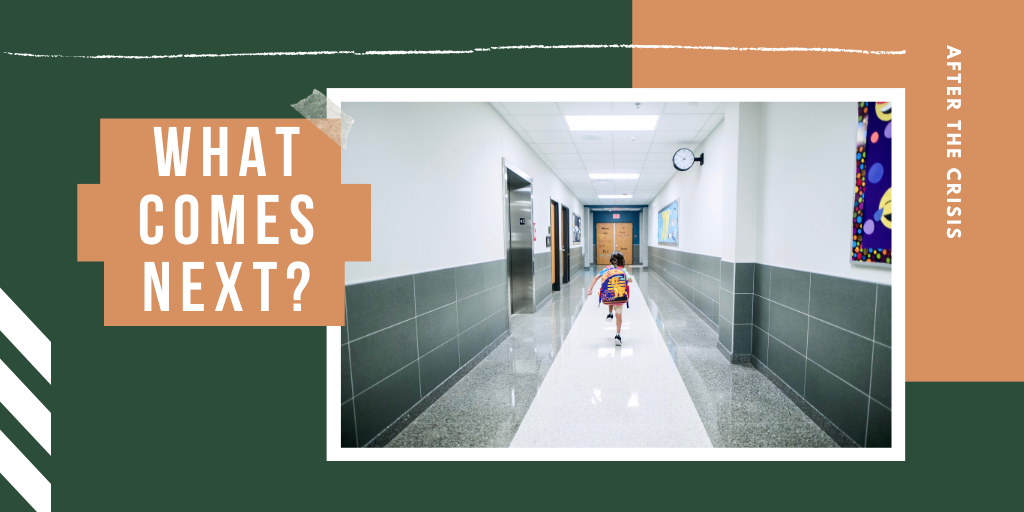
After the Crisis: What Comes Next?
Alberta is not immune to the forces and ideologies that exploit disaster capitalism. Our UCP government is not ignorant to these strategies.
When 25,000 education workers are laid off, and the next day 1.5 billion dollars is committed to a pipeline, it is obvious not only where priorities lie, but what markets are being created.
Crisis online learning may very well be the catalyst that catapults Alberta into a full voucher system. One that continues to divert precious resources from the public system to support the private.
COVID-19 may serve as the opportunity to advance these policies, not just in education, but for all public services.
That’s how disaster capitalism works.
And if this pandemic has shown Albertans anything, it has served as a spotlight on all the ways our current systems under-serve our most marginalized citizens. Online crisis learning also exposes and magnifies all the existing inequities for students in the margins.
Next time, we’ll look at all the ways rushing into online crisis education misses the mark for equitable and accessible public education for Alberta’s children.
*The Alberta Federation of Labour is producing a blog series which looks at what happens to public education during a time of crisis. We will evaluate what the Alberta government is doing during this global pandemic, and examine how governments can choose to either strengthen our public system, or use a time of crisis as a catalyst to attack, undermine, and privatize our public education. This is Part 3 in the series.

